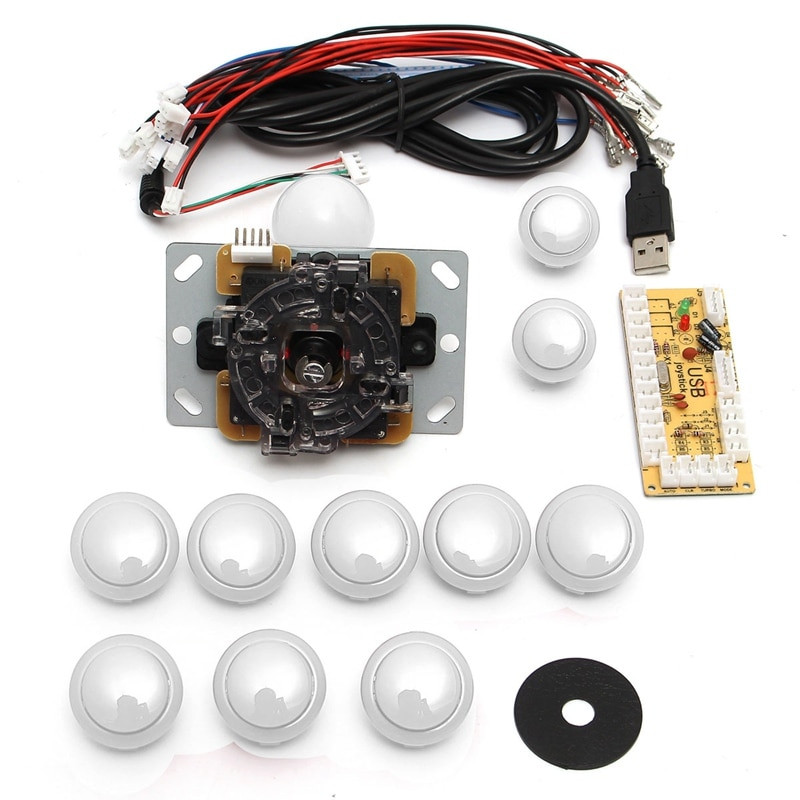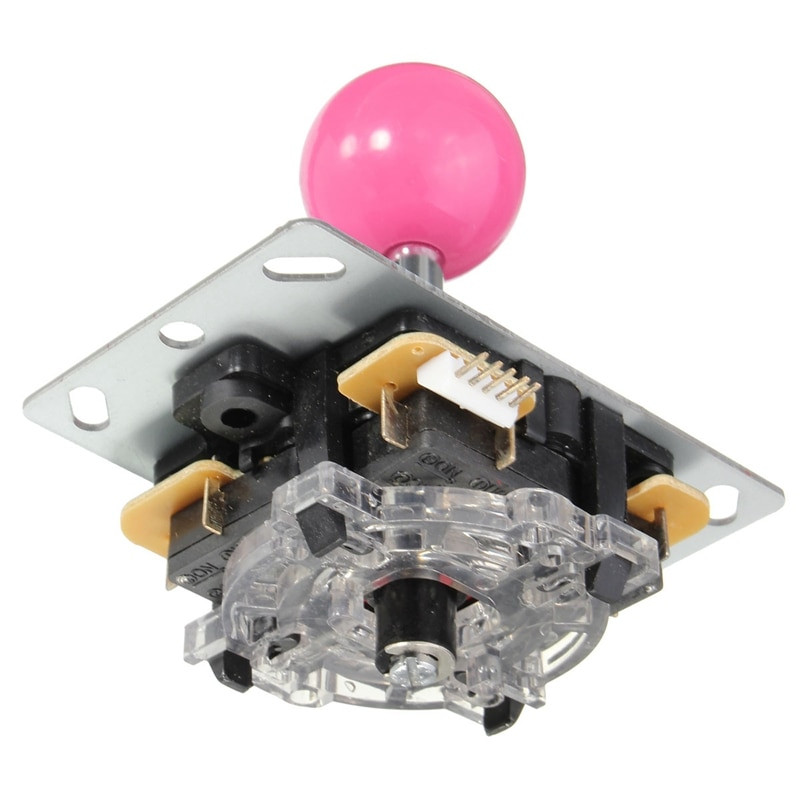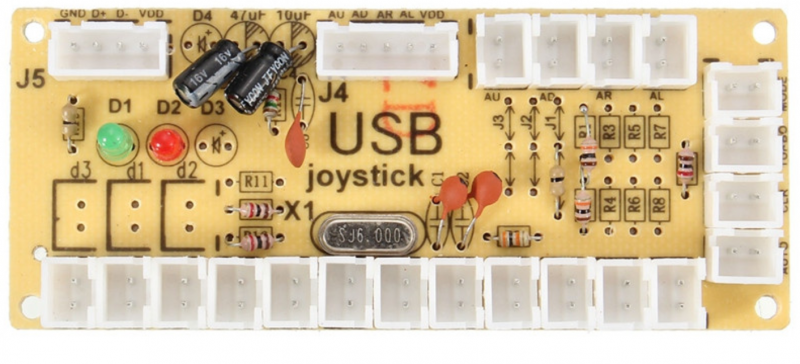As a result, I danced from the stencils described here – www.slagcoin.com/joystick/layout.html – and used this cheat sheet: I warn you, while watching, you will often think “How much does this cost. » We are simple guys, so instead of a hundred-dollar joystick on contactless Hall sensors and optical buttons with RGB backlighting, we will buy a deshman product from the Chinese industry: We will be building a game console for Doom, classic Dendy games (Nintendo Entertainment System) and Nintendo 64; shed a mean nostalgic tear and thank the drawing teacher. The classic computer games of the late seventies and early eighties were created for slot machines, only later they were replaced by game consoles connected to home TV.
A set of joysticks for assembling a slot machine – falling into childhood

 The buttons are served by a small board made of a thin getinax with an unknown microcircuit under the "black blot". No smooth ride, just discrete hardcore:
The buttons are served by a small board made of a thin getinax with an unknown microcircuit under the "black blot". No smooth ride, just discrete hardcore:  A USB cable is connected to the board. Under the cut, terry DIY, piles of plywood and purchases from AliExpress of varying degrees of scall await you. The joystick is ugly simple – there are four loudly clattering limit switches in a circle.
A USB cable is connected to the board. Under the cut, terry DIY, piles of plywood and purchases from AliExpress of varying degrees of scall await you. The joystick is ugly simple – there are four loudly clattering limit switches in a circle.  There is a canonical example on Youtube, on the LinusTechTips channel – they do not spare money for assembly there. Serious passions rage on the Internet about the “only correct” layout of buttons. Nostalgic Japanese and Americans assemble full-fledged machines with CRT monitors taken from TVs, hundreds of examples can be found on Google for "arcade cabinet DIY". (Those who are interested in the "rich inner world" of the joystick can read the review of a colleague leontevsky) The board is recognized by the computer as a "Generic USB joystick" – it is picked up immediately, it does not require drivers for Mac, or for Armbian Ubuntu, or for Windows (XP … 10). The post will be of interest to those whose adolescence fell on the "dashing nineties" and who found the Turbo button on computers.
There is a canonical example on Youtube, on the LinusTechTips channel – they do not spare money for assembly there. Serious passions rage on the Internet about the “only correct” layout of buttons. Nostalgic Japanese and Americans assemble full-fledged machines with CRT monitors taken from TVs, hundreds of examples can be found on Google for "arcade cabinet DIY". (Those who are interested in the "rich inner world" of the joystick can read the review of a colleague leontevsky) The board is recognized by the computer as a "Generic USB joystick" – it is picked up immediately, it does not require drivers for Mac, or for Armbian Ubuntu, or for Windows (XP … 10). The post will be of interest to those whose adolescence fell on the "dashing nineties" and who found the Turbo button on computers.
